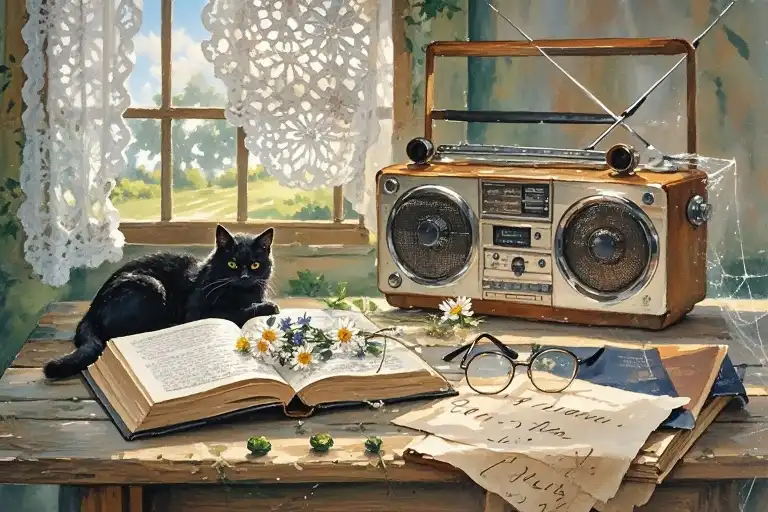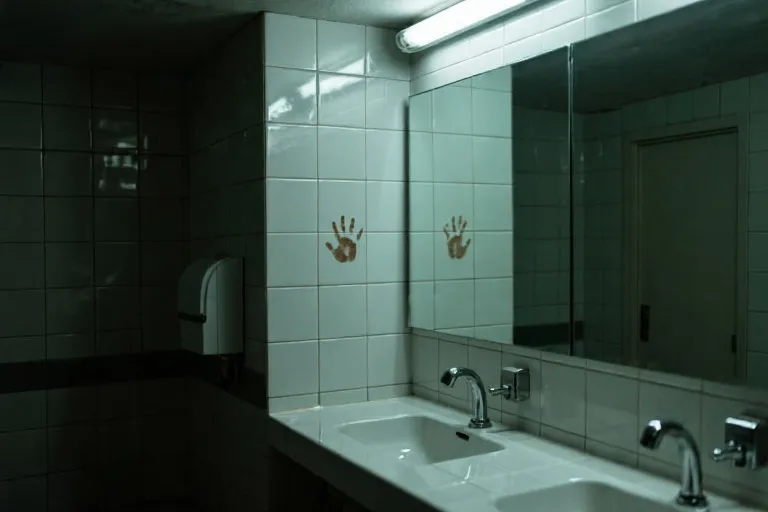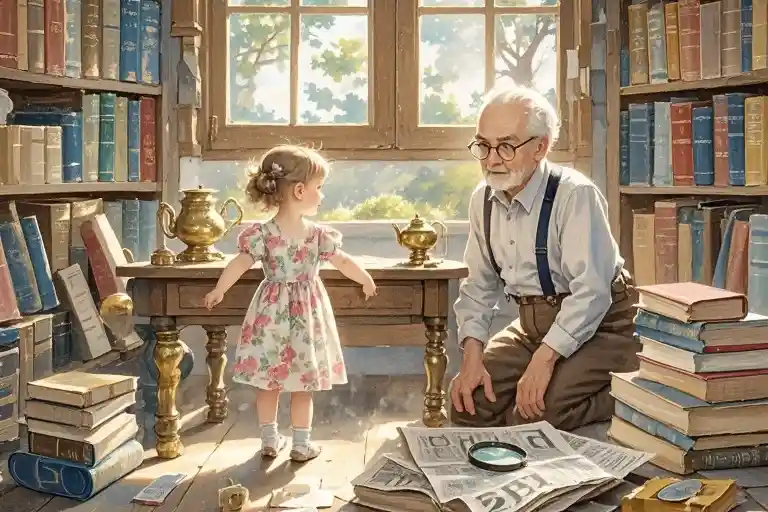The Book That Started It All .
I still smell the mildew.
That’s what hits me first when I recall the summer of ’93 – the damp earth scent of Uncle Vlad’s farmhouse blending with aging paper. At six years old, I’d already mastered the art of theatrical coughing to make teachers notice my missing front teeth. But here in this Romanian village, my usual attention-grabbing tricks bounced off the chickens clucking in Grandma’s yard.
My parents’ gleaming wall of untouched books back in Bucharest haunted me. Those leather-bound soldiers stood at perfect attention, their gold-embossed titles gleaming like medals on a general’s chest. Mom’s medical textbooks, Dad’s engineering manuals – all frozen in time like insects trapped in amber.
“Why don’t they ever read to me?” I’d wonder, kicking my feet against the bottomless silence of our living room.
The Literacy Desert (And Its Unexpected Oasis)
Grandma’s house offered two reading options:
- The Psalms (water-stained edition)
- The Psalms (moldy edition)
But Vlad’s cottage? That chaotic bachelor pad became my Narnia. His front door didn’t so much open as belch you inward with a cloud of pipe smoke and newsprint. Floorboards groaned under encyclopedias stacked like Jenga towers. Communist-era cookbooks rubbed shoulders with French poetry collections. A taxidermy owl wearing wire-rimmed glasses presided over this glorious mess.
“Pick any weapon,” he’d grin, waving at the shelves. His yellowed fingernail tapped a title called The Art of Logical Persuasion. “Just don’t tell your mother about the Nietzsche.”
Performance vs. Purpose
I developed a precise reading formula:
- Age Appropriateness ➔ Irrelevant
- Page Count ➔ The thicker the better
- Audience ➔ Mandatory
At school assemblies, I’d casually mention Sartre’s Nausea while other kids showed off new sneakers. At family dinners, I’d dissect Marx’s labor theory between bites of stuffed cabbage. The payoff? Teachers’ eyebrows shooting skyward. Relatives exchanging “Who’s child is this?” glances.
But here’s the dirty secret they never saw: The nights spent mouthing unfamiliar words until my jaw ached. The dictionary pages stuck together from frustrated tears. The hollow victory of applause that evaporated faster than Vlad’s plum brandy.
The Shelf Life of Specialness
Twenty years later, while unpacking Dad’s old calculus textbooks after his stroke, I found his margin notes in electric blue ink:
“If F(x)=0, does consciousness have a limit?” – 1978
The page smelled like his aftershave.
That’s when I finally understood our family curse – how parenting manuals had erased Mom’s love for Chekhov, how spreadsheet deadlines had buried Dad’s midnight equations. Their bookshelves weren’t decorations; they were headstones for the selves they’d mourned.
Rewriting the Script
Today, when anxiety claws at my throat, I reread Vlad’s crumbling paperbacks. Not to perform, but to hear his wheezy laugh in the margins. Not to impress, but to find Dad’s ghost in the empty spaces between theorems.
The books didn’t make me special after all. They made me human.




